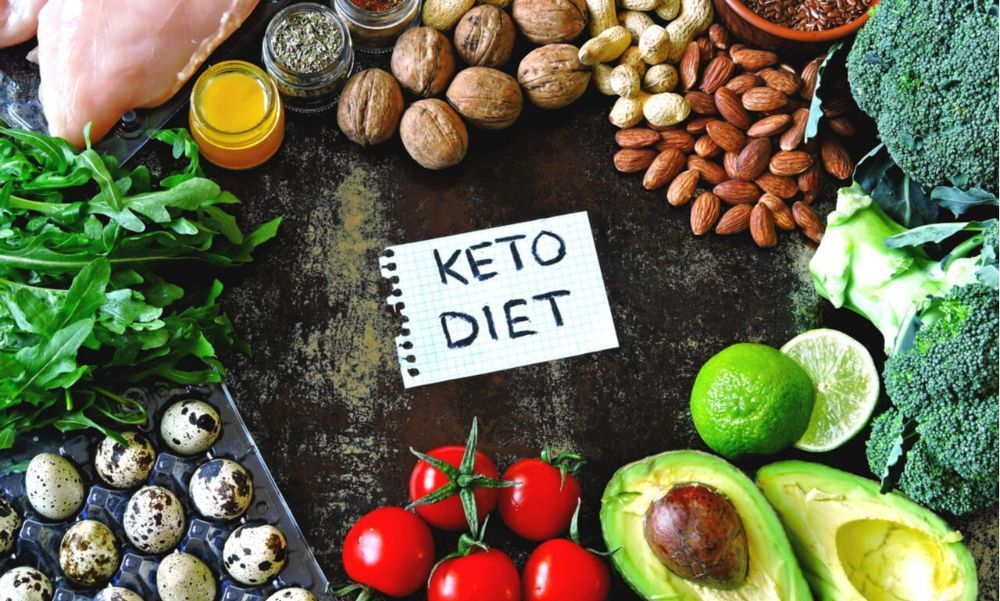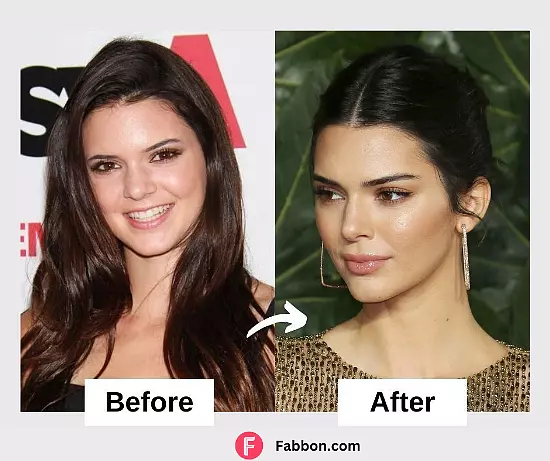The Ultimate Keto Diet Food List For Beginners: What To Eat And Avoid
Sreedarshini Mitra
Are you looking to start a keto diet? If so, you’ve come to the right place! A keto diet is a low-carb, high-fat diet that helps to reduce appetite, and lead to weight loss. With the keto diet, you’ll be eating mostly healthy fats, proteins, and non-starchy vegetables. To make sure you’re getting the most out of your keto diet, we’ve put together an ultimate keto diet foods list for beginners. This comprehensive guide will show you what to eat and avoid on a keto diet, so you can stay on track and achieve your health and wellness goals. From avocados to zucchini, you’ll find a wide variety of delicious and nutritious keto-diet food list for beginners to add to your grocery list. So, let’s get started!
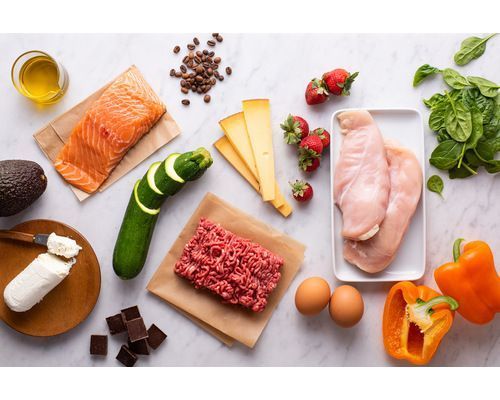
What are the Benefits of the Keto Diet?
The keto diet has become a popular choice for health-conscious individuals, due to its numerous health benefits. Research shows that the keto diet helps to reduce appetite, leading to weight loss and improved metabolic health. Additionally, the keto diet helps to reduce inflammation and improve insulin sensitivity, both of which are important for overall health. For those with existing medical conditions, the keto diet can also help to reduce symptoms and improve quality of life.
The keto diet is also beneficial for cognitive health, as it helps to improve memory and concentration. Additionally, the keto diet reduces the risk of certain chronic diseases, such as heart disease and diabetes. And, because the diet is high in healthy fats and proteins, it helps to keep you full and energised, so you can stay on track with your health and wellness goals.
What Foods are Allowed on the Keto Diet?
When it comes to what to keto diet, there are a few basic guidelines to follow. When creating your grocery list, you want to focus on healthy fats, proteins, and non-starchy vegetables.
- Healthy fats include avocados, olive oil, butter, and coconut oil. When it comes to proteins, opt for lean sources, such as poultry, fish, and eggs. For non-starchy vegetables, try adding broccoli, kale, spinach, and zucchini to your meals.
- You can also include some low-carb fruits and nuts in moderation.
- Low-carb fruits include berries, lemons, and limes. For nuts, try adding walnuts, almonds, and macadamia nuts to your meals. Additionally, you can include some dairy products, such as Greek yogurt and cheese. Just be sure to check the labels for added sugars, as these can add up quickly.These are majorly the keto diet foods to eat while maintaining the guidelines,
What Foods Should You Avoid on the Keto Diet?
When it comes to what to avoid on the keto diet, the list is fairly straightforward. You want to avoid any foods that are high in carbs and sugar, as these can quickly add up and derail your weight loss efforts. There is a list of keto diet foods to avoid. This includes grains, such as wheat, rice, and oats, as well as starchy vegetables, such as potatoes and corn. You also want to avoid processed foods, such as chips, cookies, and candy.
Additionally, you want to avoid any sugary drinks, such as sodas, juices, and sports drinks. Alcohol is also a no-go on the keto diet, as it’s high in carbs and can cause a spike in blood sugar. Finally, you want to avoid any artificial sweeteners, as these can cause cravings and lead to weight gain.
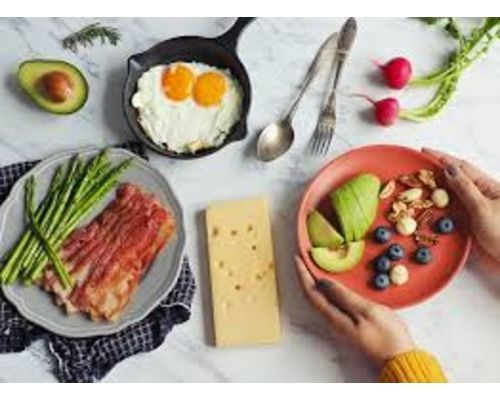
The Ultimate Keto Diet Foods List
With good cause, the ketogenic diet has grown in popularity over time. A low-carb, high-fat diet known as the "keto diet" has been shown to aid in weight loss, increase energy, and even enhance brain function.
Now that you know what to eat and avoid on the keto diet, it’s time to put together your ultimate keto diet foods list. Here are some of the best keto diet foods to eat and add them to your grocery list.
- Fats: Avocados, olive oil, butter, coconut oil
- Proteins: Poultry, fish, eggs
- Vegetables: Broccoli, kale, spinach, zucchini
- Fruits: Berries, lemons, limes
- Nuts: Walnuts, almonds, macadamia nuts
- Dairy: Greek yogurt, cheese
Keto-Friendly Snacks
Snacking is an important part of any diet, and the keto diet is no exception. To make sure you’re staying on track with your keto goals, try adding some of these delicious and nutritious snacks to your grocery list:
- Nuts and seeds
- Hard-boiled eggs
- Cheese and olives
- Celery and peanut butter
- Greek yogurt and berries
- Cucumber slices with guacamole
- Coconut chips
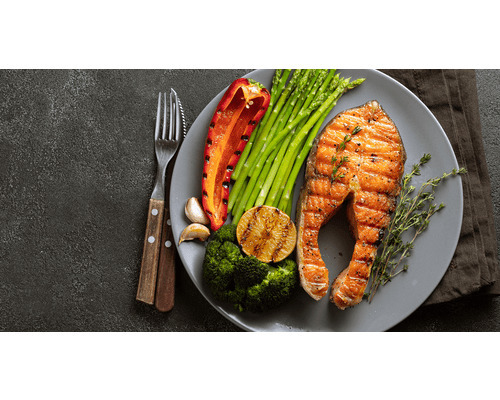
Tips for Staying on Track with the Keto Diet
Sticking to the keto diet can be challenging, but there are a few tips you can follow to help you stay on track. First, plan your meals ahead of time, so you have healthy options on hand. Second, try to include a variety of healthy fats, proteins, and non-starchy vegetables in your meals. Third, be sure to track your progress, so you can stay motivated and celebrate your successes.
Supplements That Help With Keto Diet
While the keto diet is a great way to improve your health and wellness, there are a few supplements that can help you get the most out of your diet. One of the most popular supplements for the keto diet is exogenous ketones, which help to boost energy levels and accelerate weight loss. Additionally, MCT oil can help to increase ketone production, which can help to reduce hunger and cravings.
Finally, collagen is another popular supplement for the keto diet. Collagen helps to improve skin health and reduce inflammation. Plus, it helps to keep you full, so you can stay on track with your weight loss goals.
Keto Diet Meal Plan Ideas
When it comes to meal planning on the keto diet, there are a few key tips to keep in mind.
- First, focus on healthy fats, proteins, and non-starchy vegetables.
- Second, try to include at least one source of healthy fat at each meal.
- Third, plan your meals ahead of time, so you can stay on track and avoid temptation.
7 day menu plan:
Day 1:
Breakfast: Spinach and mushroom omelette with avocado
Lunch: Grilled chicken breast with roasted cauliflower
Dinner: Salmon with asparagus and lemon butter
Day 2:
Breakfast: Bacon and eggs with sliced avocado
Lunch: Tuna salad with mixed greens and olive oil dressing
Dinner: Beef stir-fry with broccoli and peppers
Day 3:
Breakfast: Greek yogurt with raspberries and chia seeds
Lunch: Chicken Caesar salad with homemade dressing
Dinner: Baked salmon with green beans and garlic butter
Day 4:
Breakfast: Keto pancakes with sugar-free syrup and berries
Lunch: Grilled shrimp with mixed greens and lemon vinaigrette
Dinner: Grilled steak with roasted Brussels sprouts
Day 5:
Breakfast: Keto smoothie with almond milk, peanut butter, and spinach
Lunch: Chicken and vegetable stir-fry with coconut aminos
Dinner: Grilled chicken with broccoli and hollandaise sauce
Day 6:
Breakfast: Scrambled eggs with bacon and sliced avocado
Lunch: Tuna salad with mixed greens and olive oil dressing
Dinner: Grilled salmon with roasted asparagus
Day 7:
Breakfast: Greek yogurt with raspberries and chia seeds
Lunch: Grilled chicken breast with mixed greens and balsamic dressing
Dinner: Beef and vegetable stir-fry with sesame oil
Finally, don’t be afraid to treat yourself once in a while. If you’re craving something sweet, try a low-carb dessert, like sugar-free ice cream or sugar-free dark chocolate. This will help to satisfy your cravings and keep you on track with your keto goals.
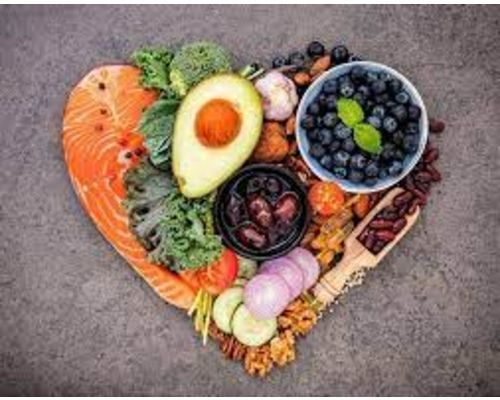
Conclusion
The keto diet is a great way to improve your health and wellness. With the ultimate keto diet foods list for beginners, you can stay on track and achieve your weight loss goals. Just remember to focus on healthy fats, proteins, and non-starchy vegetables, and to avoid any processed foods, sugary drinks, and alcohol. Additionally, be sure to include some keto-friendly snacks, and plan your meals ahead of time. With these tips, you can stay on track and make the most out of your keto diet journey.
FAQs
1. What is the keto diet, and how does it work?
The keto diet forces the body to burn fat for energy instead of glucose by being high in fat, moderate in protein, and low in carbohydrates. Your body enters a state of ketosis, where it burns fat for energy, when you restrict your carbohydrate intake. Weight loss and other health advantages result from this.
2. What foods can I eat on the keto diet?
You can consume high-fat foods like meat, fish, eggs, cheese, butter, nuts, seeds, and healthy oils like coconut and olive oil while following the ketogenic diet. You need to consume fewer carbohydrates, such as those found in foods like bread, pasta, rice, and sugar. Instead, try low-carb vegetables like kale, spinach, broccoli, and cauliflower.
3. Is the keto diet safe for beginners?
The majority of people may safely follow the ketogenic diet, but there may initially be some side effects such headaches, lethargy, and diarrhea. Over a few days or weeks, these adverse effects normally disappear. However, you should see your doctor before beginning the keto diet if you have any underlying medical conditions or are taking medication.
4. How much weight can I expect to lose on the keto diet?
Your beginning weight, calorie intake, and level of exercise are just a few examples of the variables that can affect how much weight you can lose on the keto diet. While some people may see rapid weight loss in the first few weeks, others may have delayed weight loss. It's crucial to keep in mind that the keto diet has additional advantages besides weight loss. Your energy levels, mental clarity, and general wellness can all be enhanced by it.
5. Can I follow the keto diet if I am a vegetarian or vegan?
Sure, vegetarians and vegans can follow the keto diet, although it can be more difficult to eat enough protein and healthy fats. You can consume things like tofu, tempeh, nuts, seeds, and veggies low in carbohydrates. To make sure you are reaching your nutrient needs, you might also need to take a protein powder supplement or other keto-friendly supplements.

